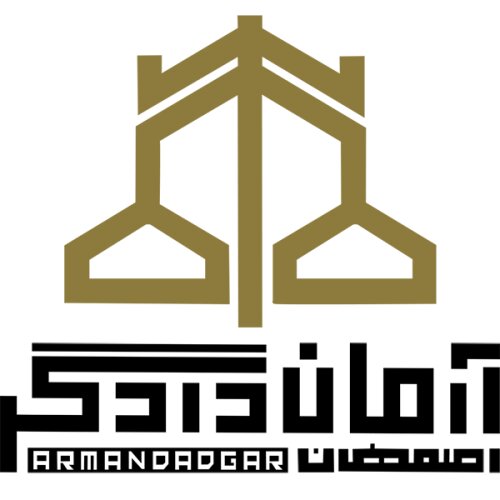Best ADR Mediation & Arbitration Lawyers in Isfahan
Share your needs with us, get contacted by law firms.
Free. Takes 2 min.
List of the best lawyers in Isfahan, Iran
About ADR Mediation & Arbitration Law in Isfahan, Iran
Alternative Dispute Resolution (ADR) through mediation and arbitration is gaining recognition in Isfahan, Iran, as a viable alternative to traditional court litigation. ADR involves resolving disputes outside of the formal court system, offering parties faster and more flexible processes to achieve settlements. Mediation encourages parties to work with a neutral mediator to reach a mutually acceptable agreement, while arbitration involves a neutral arbitrator making a binding decision. In Iran, ADR mechanisms are especially relevant in commercial, family, and civil disputes, and are supported by both statutory provisions and local legal practices.
Why You May Need a Lawyer
Many individuals and businesses in Isfahan seek legal guidance when involved in disputes due to the complexities of ADR processes and the local laws governing them. Some common situations include:
- Contractual disagreements between businesses or individuals
- Family disputes such as divorce or inheritance
- Commercial transactions involving local or international parties
- Employment-related disputes
- Disagreements over real estate or property
A lawyer can help by ensuring that your rights are protected, guiding you on the appropriate ADR method, drafting or reviewing agreements, and representing your interests during mediation or arbitration sessions.
Local Laws Overview
In Isfahan, arbitration and mediation are governed primarily by the Civil Procedure Code of Iran and the Law on International Commercial Arbitration. The key aspects include:
- Mediation is encouraged in family and civil cases, and sometimes required before court proceedings begin.
- Arbitration is recognized legally for many types of disputes, especially in commercial and construction contracts.
- The Iranian judiciary supports enforcement of arbitration awards that meet legal standards.
- Parties may agree to resolve their dispute through ADR either before or after a dispute arises.
- Local chambers of commerce and legal organizations often provide arbitration and mediation services with qualified panels.
- Confidentiality is a fundamental principle in ADR sessions, protecting the parties’ privacy and commercial secrets.
Understanding these rules is essential, as failure to comply with legal procedures can affect the outcome of ADR proceedings.
Frequently Asked Questions
What is the difference between mediation and arbitration?
Mediation is a structured negotiation facilitated by a neutral third party called a mediator, who helps the parties reach a voluntary agreement. Arbitration, on the other hand, involves a neutral arbitrator or panel making a binding decision after hearing both parties’ cases.
Are ADR agreements legally binding in Isfahan, Iran?
Arbitration awards are legally binding if the arbitration agreement and proceedings comply with Iranian law. Mediation agreements may become enforceable if both parties sign the settlement and, in some cases, obtain court approval.
Can court cases be converted into ADR proceedings?
Yes, parties involved in court cases can usually agree to pause or withdraw their case in favor of mediation or arbitration, provided court approval is obtained when necessary.
Is it necessary to have a lawyer during ADR sessions?
While not legally required, having a lawyer is highly beneficial, especially for ensuring your interests are represented, understanding complex agreements, and navigating procedural rules.
How are arbitrators or mediators selected in Isfahan?
Parties typically agree on the choice of mediator or arbitrator. If they cannot agree, local organizations or the court may appoint a qualified professional to oversee the process.
Are ADR processes confidential in Isfahan?
Yes, confidentiality is a cornerstone of both mediation and arbitration, protecting the parties from public disclosure of sensitive issues discussed or decided during the process.
What kinds of disputes are suitable for ADR?
ADR is suitable for a wide range of disputes including commercial, contractual, employment, family, and property matters, as long as public policy or criminal issues are not involved.
How long does the ADR process take?
ADR processes are typically much faster than traditional court cases, often resolved in a few weeks to several months, depending on the complexity of the dispute and the willingness of parties to cooperate.
What happens if one party does not comply with an arbitration award?
If a party refuses to comply with a legally binding arbitration award, the other party can apply to the courts in Isfahan for enforcement, provided all legal requirements have been met.
Can foreign parties use ADR in Isfahan?
Yes, foreign individuals and businesses can use ADR in Isfahan, and international arbitration clauses in agreements are generally upheld by Iranian courts, especially under the Law on International Commercial Arbitration.
Additional Resources
If you need more information or support regarding ADR mediation and arbitration in Isfahan, consider reaching out to:
- Isfahan Chamber of Commerce, Industries, Mines and Agriculture - for commercial dispute resolution services
- Iranian Organization for Legal Advisors - for directories of qualified mediators and arbitrators in Isfahan
- Iran Judiciary Dispute Resolution Councils - for guidance on family and civil mediation
- Law faculties and university legal clinics - for legal advice and student-led ADR programs
- Ministry of Justice of Iran - for information on national laws regarding mediation and arbitration
Next Steps
If you find yourself in a dispute or seeking to resolve a legal issue through ADR in Isfahan, consider the following steps:
- Gather all relevant documents such as contracts, agreements, or correspondence related to your dispute.
- Consult with a qualified legal practitioner who specializes in ADR in Isfahan for advice on your options and to evaluate the best method for your case.
- Check if your contract contains an ADR clause stipulating specific procedures or institutions to use.
- Reach out to a local ADR center or organization for mediation or arbitration services.
- If an agreement is reached, ensure it is documented clearly and complies with legal requirements for enforceability.
- If you need to enforce an arbitration award or mediated settlement, seek legal assistance for court procedures.
Taking timely legal advice can help resolve disputes efficiently and minimize the emotional and financial costs of prolonged litigation.
Lawzana helps you find the best lawyers and law firms in Isfahan through a curated and pre-screened list of qualified legal professionals. Our platform offers rankings and detailed profiles of attorneys and law firms, allowing you to compare based on practice areas, including ADR Mediation & Arbitration , experience, and client feedback.
Each profile includes a description of the firm's areas of practice, client reviews, team members and partners, year of establishment, spoken languages, office locations, contact information, social media presence, and any published articles or resources. Most firms on our platform speak English and are experienced in both local and international legal matters.
Get a quote from top-rated law firms in Isfahan, Iran — quickly, securely, and without unnecessary hassle.
Disclaimer:
The information provided on this page is for general informational purposes only and does not constitute legal advice. While we strive to ensure the accuracy and relevance of the content, legal information may change over time, and interpretations of the law can vary. You should always consult with a qualified legal professional for advice specific to your situation.
We disclaim all liability for actions taken or not taken based on the content of this page. If you believe any information is incorrect or outdated, please contact us, and we will review and update it where appropriate.










